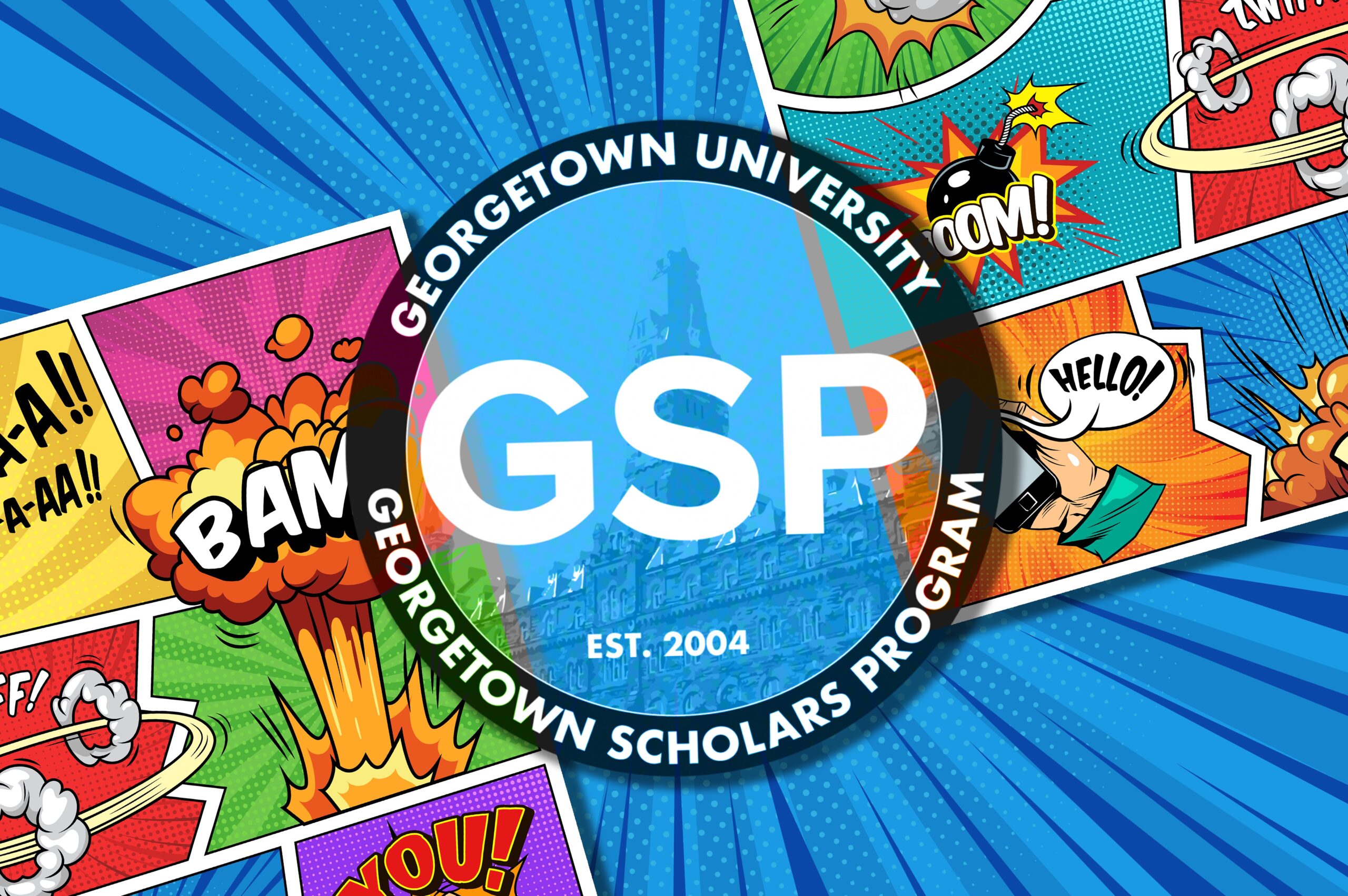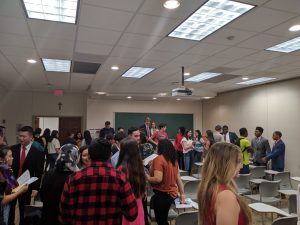It was a Friday evening, and the week had taken its toll on me. Days filled with relentless work and a string of college-related disappointments had left me drained. With a sigh of exhaustion, I shut down my work computer, and as I left the office, I shared the news with my supportive coworkers: Georgetown’s admission decision was scheduled to be released that night. They offered their heartfelt wishes of luck as I gathered my belongings. Filled with a mix of anticipation and an underlying assumption of rejection, I made a casual stop at the gym, figuring there was no sense in creating a grand spectacle for an outcome I wasn’t entirely convinced would favor me. In between bench sets, I couldn’t resist the urge to refresh my email page. Then, in an instant, the status update appeared, eliciting a surge of nerves and a skeptical thrill. Georgetown was the dream I hadn’t dared to dream.
As I cautiously opened the email, I braced myself for disappointment. My initial instinct was right; there was no confetti, no grand announcement. But then, my eyes fell on those transformative words: “It gives me great pleasure to inform you….” I couldn’t believe it; I was accepted to Georgetown. The excitement welled up inside me, and without hesitation, I called my Mom and Dad. They had just returned home from work, and our joyous disbelief was a sight to behold. We all huddled into the car, even our dog Lola, and embarked on a celebratory trip to Taco Bell. That night, we gathered around the TV to watch virtual tours of the campus, and I began to imagine my not-so-distant future at Georgetown.
Visiting the campus hadn’t been an option before. It wasn’t just the distance from Wisconsin to Washington, DC that deterred us; it was also the fear of letting myself down. My parents, not having had the privilege of attending college themselves, were unable to guide me through the incredibly inaccessible system that is the college application process. When I asked my teachers about it, many told me they had never heard of Georgetown. I ended up compiling my application materials with little to no instruction, devoid of any college counseling, test and essay prep, pre-college programs, or family connections. I was hardly able to fathom the people on the other end who would be reading my application; I just hoped that they would give me a chance to contribute to their campus community. When I was admitted, it felt like a stroke of luck—like I had been marked for admission by mistake.
I maintained something of a prideful disbelief throughout the entire summer after my high school graduation. However, this pride became tinged with apprehension once I set foot on campus. During New Student Orientation (NSO) and convocation, I couldn’t help but notice that my new classmates—many of whom seemed to know each other already, whether through family connections or private school networks—spoke of their summer travels, internships, and escapades at exclusive destinations. While they chatted excitedly, I struggled to find any semblance of familiarity amidst the crowd. It was during this disorienting moment that I discovered a connection with the convocation speaker, a fellow student who had faced her own hardships, much like mine. She was a member of both the Community Scholars Program and the Georgetown Scholars Program (GSP).
GSP, Georgetown’s program for first-generation and/or low-income students, was the one organization I knew about before arriving on campus. They had reached out to me after my acceptance, assuring me of support in my first year and beyond. They told me about the various first-year resources, including a winter-coat grant and a free flight home. Before my arrival, GSP provided a helpful handbook with tips on affordability, travel, and more. When I finally set foot on campus, they welcomed me with a complete bedding set, offering a warm and reassuring sense of belonging. Nonetheless, the support from GSP, while invaluable, couldn’t entirely mitigate the disorientation and isolation I felt during NSO and my initial weeks on campus.
The isolation of being a first-generation low-income student (FGLI) in a school like Georgetown was undeniable. I soon discovered that 20% of my classmates came from the top 1% of the income distribution, while only 17% hailed from the bottom 60%. Many of my peers possessed a different kind of cultural capital, or the social assets and knowledge that can serve to promote mobility, shaped by years of education in affluent environments. I learned about “feeder schools” and the prestigious boarding schools many of my classmates had attended. It didn’t take long for me to realize that my experience was far from the norm. Only around 650 students out of Georgetown’s 7,900 undergraduate population are members of GSP, and even fewer hailed from under-resourced rural areas like I did. It was alienating when no one knew where I was from or couldn’t understand the first-generation low-income circumstances I came from. I had never been ashamed of my identity before, never hesitated to talk about my financial situation, but it now felt like that aspect of my identity came with a set of stereotypes I wasn’t prepared to confront. I briefly considered concealing my first-generation low-income identity, but this only seemed to amplify the frequency and insensitivity of comments made about socioeconomic status by my professors and peers.
Amidst this challenging landscape, GSP emerged as a lifeline. They offered a first-year course called “Mastering the Hidden Curriculum,” where we came together to better understand our identities as FGLI students. In this course, professors and student leaders challenged the notion that access to higher education was solely based on merit, while we developed the cultural capital that many of our peers already possessed. Most notably, we discovered the importance of attending office hours, where many of my professors provided me with the resources and guidance I didn’t receive from my high school education. In office hours, I formed meaningful connections with my professors that helped affirm that I belong at Georgetown—inspiring me to pursue my academic interests without fear of failure or judgment. These interactions have shown me that I have a network of support at Georgetown that extends well beyond GSP, encompassing the students alongside me in class, my professors, other academic staff, our extensive alumni network, and even the admissions office where GSP was founded.
Often, as first-generation low-income students, we lose that initial sense of pride in our constant efforts to just get by at Georgetown. However, as we celebrate GSProud, let this be a moment of rekindling that pride and joy we first felt. We have already demonstrated tremendous strength and tenacity to be here, and that, in itself, is something to be immensely proud of. Let us unite in recognizing that our diverse experiences and perspectives are invaluable contributions to the Georgetown community. As we move forward, let’s continue to support and empower one another, ensuring that every student, regardless of their socioeconomic background, feels the same sense of pride and belonging. Together, we can fortify Georgetown as a place where every individual’s story and struggle are not just acknowledged but celebrated, forging a more inclusive and vibrant campus for all.




